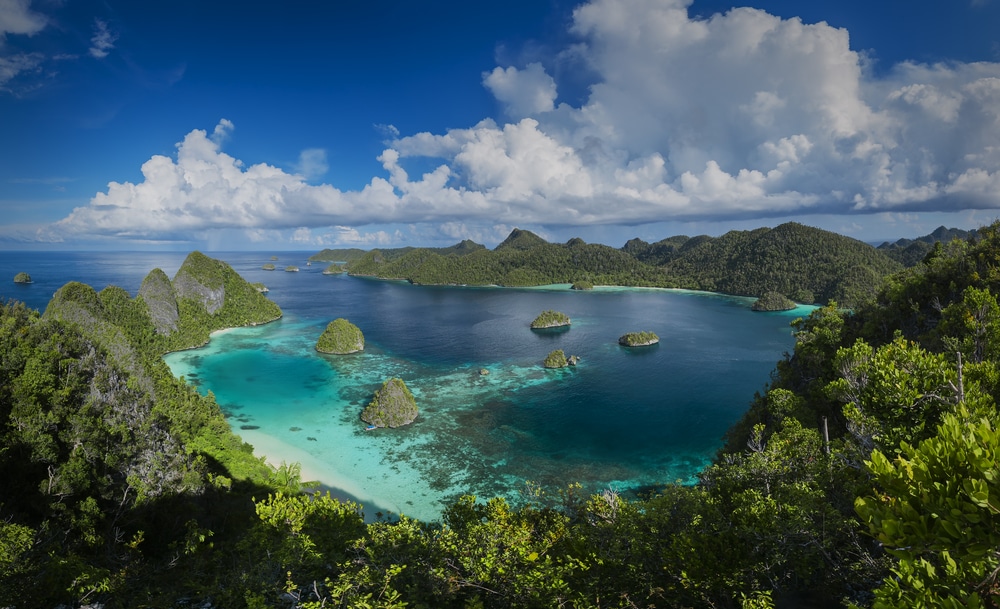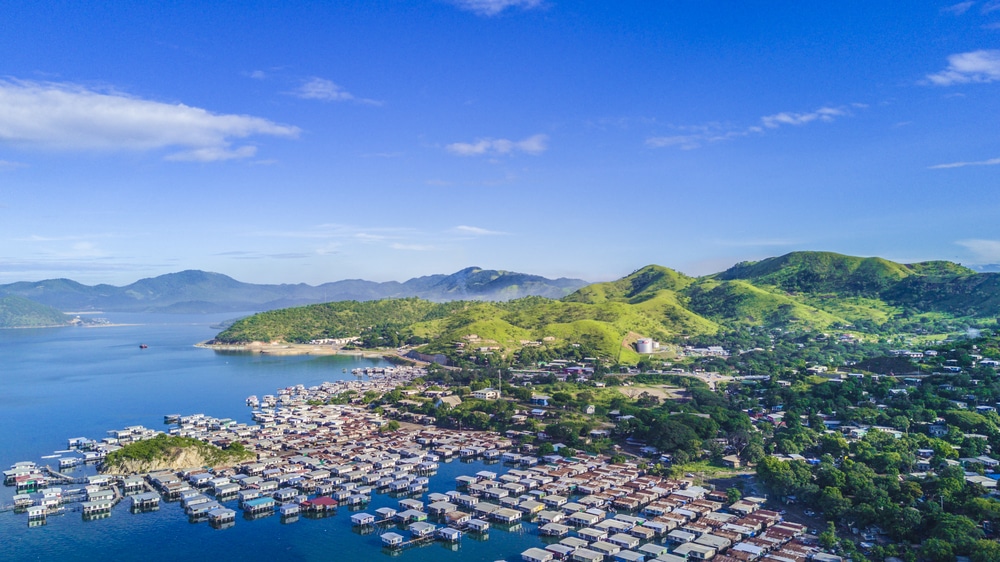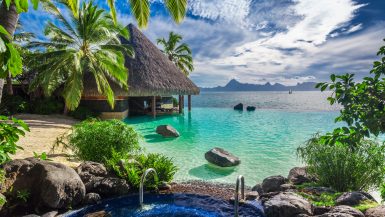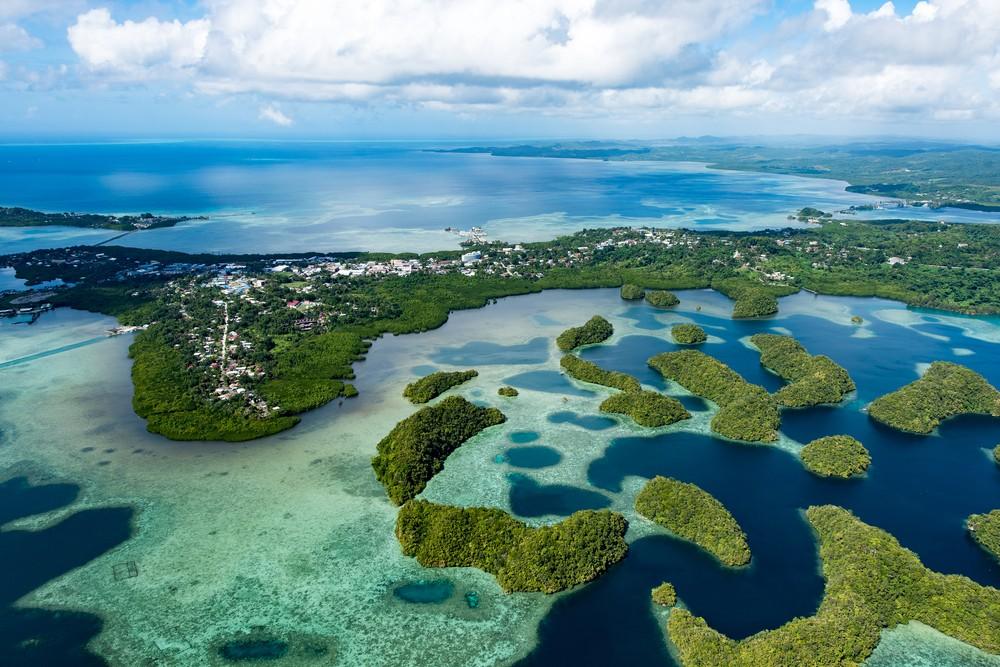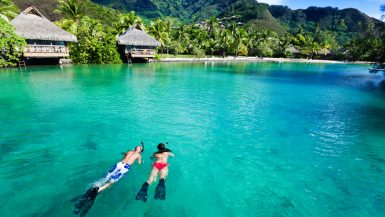Papua New Guinea is the eastern part of the island of New Guinea, the second largest island in the world. The West belongs to Indonesia. In total, Papua New Guinea consists of 600 other smaller islands in addition to the main island. This includes the Bismarck Chip, New Britain and New Ireland. Papua New Guinea is above all a very natural, original island state. Steep mountain regions and active volcanoes emerge from the tropical rainforests.
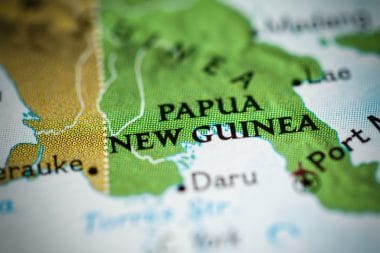
The coasts are made up of swamps and mangrove forests. The mountainous volcanic island is still a popular destination for ethnologists today: up to 1000 cultural groups cavort here. Linguistically, this region is one of the most diverse in the world, with more than 820 languages spoken in Papua New Guinea.
The country is still largely untouched and seems to be stuck in the Stone Age: In the island state, men still hunt with spears, animist cults continue to be cultivated. Tourists who just want to lie lazily on the beach should stay away from Papua New Guinea. Real explorers who are also willing to take on hardships and can do without the comforts of civilization for a few days will get their money’s worth here.
The Cities of Papua New Guinea – Points of Light within the Jungle
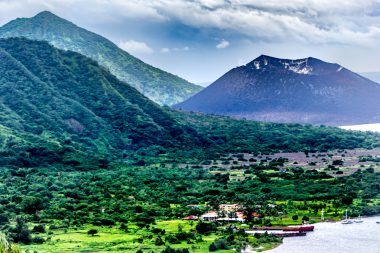
The first port of call for many travelers is the capital Port Moresby. It is located on the south coast of the island state. Here you will find some hotels, restaurants and a similar city life as in Indonesia“>Indonesia. The Parliament Building in Port Moresby was inaugurated by Prince Charles in 1984 and combines elements of modern and traditional architectural styles. In the suburb of Waigani, the National Museum and Art Gallery is open to anyone interested in art and the country’s 50,000-year history.
Discover Papua New Guinea at your own risk

The cities of the country are not the main attraction, but the island, its nature and its inhabitants. After all, the majority of the population of Papua New Guinea lives in the countryside. However, the Foreign Office advises against wanting to discover the island on your own. Most of the country is untouched and does not court travelers with cheap hotels or hiking trails prepared for tourists. Travelers are best joined by a group led through the country by experienced guides. As already indicated, exploring the country can be associated with some strains. It will certainly not be a walk in the park. In addition, even though most of the inhabitants are very friendly, there have been robberies from time to time. It’s safer in a group.
Discover nature on the Kodoka Trail
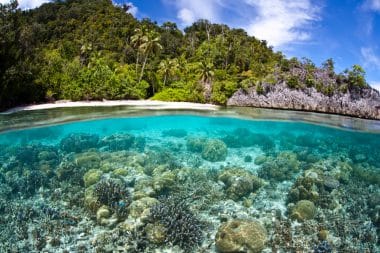
Port Moresby is where the Kodoka Trail begins. The 96-kilometer hiking trail takes travelers through the dense jungle and over the Owen Stanley Mountains. A good 700 bird species of the country can be seen. In addition, relics from the 2nd World War occasionally line the path: old tanks, landing craft and planes. Australia and Japan fought battles here. Other popular hiking trails would be the Kopianga Lake-Oksapmin Trail or the Black Cat Track.
An alternative is the voyage of discovery on the Sepik River. With a simple boat, you can visit the various villages of the country and marvel at the flora and fauna from the water.
The Highland tribes and their festivals
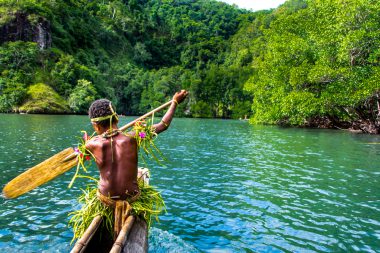
You really arrived in Papua New Guinea only in the highlands. This is where the original peoples of the country live, for example the Huli, also called “Wig men” because of the wigs. The highland tribes celebrate a wide variety of festivals every year. The “Sing-Sing” is the largest of them. If you find yourself in the city of Goroka in September, you can’t miss this festival. Up to 150 tribes come together at the Sing-Sing and present their folk songs. They wear the traditional clothing of their village, such as elaborately designed skirts and masks. Apart from the sing-sing, the peoples celebrate many other colourful festivals, such as dance festivals or compensation rituals, in which roast pork is eaten in an earth oven – a speciality of the country – to settle disputes.
The highlands also have natural beauties to offer. For example, the Kutubu Lake or the Wasi Waterfalls. On Mt. Wilhelm has a wonderful view of the island.
Diving in Papua New Guinea’s Coasts
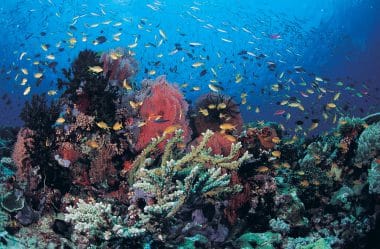
The country is a paradise for divers. The coastal strips are lined with numerous archipelagos and reliefs. Mangroves, coral reefs and lagoons invite you to dive and swim here. Many shipwrecks are also hidden on the seabed, many of them from the 2nd World War. Papua New Guinea’s coasts should be interesting not only for divers, but also for surfers, including on the north coast of Vanimo or near Port Moresby.
Volcanoes and ash
Volcanoes shape the shape of Papua New Guinea. In the Bismarck Sea alone, divers can discover about 100 volcanoes. Rabaul, the capital of the province of East New Britain on the island of New Britain, has itself been hit several times in recent history by the nearby volcanoes Tavurvur and Vulcan. Both volcanoes are still active today. Large parts of the city are covered in ash, many of the residents had to be resettled.
More impressions Papua New Guinea
Holidays in Papua New Guinea: Important information
Important telephone numbers
- Emergency numbers: 111 (police, fire brigade, rescue service)
- Embassy of Germany in Port Moresby: +675 321 1022
Doctors
- Dr. Barry Kirby: Pacific International Hospital, 3 Mile, Port Moresby, +675 323 4400
- Dr. John Kaupa: Paradise Private Hospital, Taurama Road, Boroko, Port Moresby, +675 325 6022
Important words with translation
- Hello – Halo
- Thank you – Tenkyu
- Please – Plis
- Yes – Yes
- No – Nogat
- Sorry – Sori
- Where is…? – We em…?
- How much does it cost…? – Hamas em i kostim…?
- Emergency – Emergensi
- Doctor – Dokta
- Hospital – House sik
Holidays
- New Year’s Day: January 1
- Good Friday: variable (March/April)
- Easter Monday: variable (March/April)
- Queen’s birthday: Second Monday in June
- Independence Day: September 16
- Christmas: December 25
- Boxing Day: December 26
Opening hours
- Shops: Usually Monday to Friday from 8:00 a.m. to 5:00 p.m., Saturday from 8:00 a.m. to 12:00 p.m.
- Supermarkets: Usually daily from 8:00 a.m. to 8:00 p.m.
- Restaurants: Lunch from 12:00 to 14:00, dinner from 18:00 to 21:00.
- Banks: Monday to Friday from 8:45 a.m. to 3:00 p.m.
Airport
- Jacksons International Airport (POM): In Port Moresby
NUDISM
- Not common: There are no official nudist beaches in Papua New Guinea. Nudism is not practiced and could be considered offensive.
Post / Stamps
- Post Offices: In all major cities. Opening hours: Monday to Friday from 8:00 a.m. to 4:00 p.m.
- Stamps: Available at post offices and kiosks.
- Costs for letters and postcards to Germany: Standard letter up to 20g: approx. 6 PGK; Postcard: approx. 4 PGK
Safety
- Crime: Papua New Guinea has a relatively high crime rate. It is recommended to be vigilant at all times, especially in larger cities. Valuables should be kept safe.
- Emergency number: 111
Current
- Voltage: 240 volts
- Sockets: Type I (as in Australia). Adapter required for European plugs.
Tip
- Not common: Tipping is not expected in Papua New Guinea. However, excellent service can be rewarded with a small amount.
Customs
- Allowances: Personal belongings are duty-free.
- Alcohol: Maximum 2 liters of spirits.
- Tobacco: 250 cigarettes or 250g of tobacco.
- Other items: Worth up to 1,000 PGK duty-free.

